Are you looking for the best crypto wallets to ensure the security of your digital assets? This comprehensive guide reviews the top 10 crypto wallets available, focusing on features like security, user-friendliness, and transaction speed. We’ll explore various wallet types, including hardware wallets, software wallets, and mobile wallets, to help you choose the best crypto wallet for your specific needs and secure your cryptocurrency investments. Discover which wallets offer the highest level of protection against hacks and theft, enabling you to make secure transactions with confidence.
Ledger Nano X
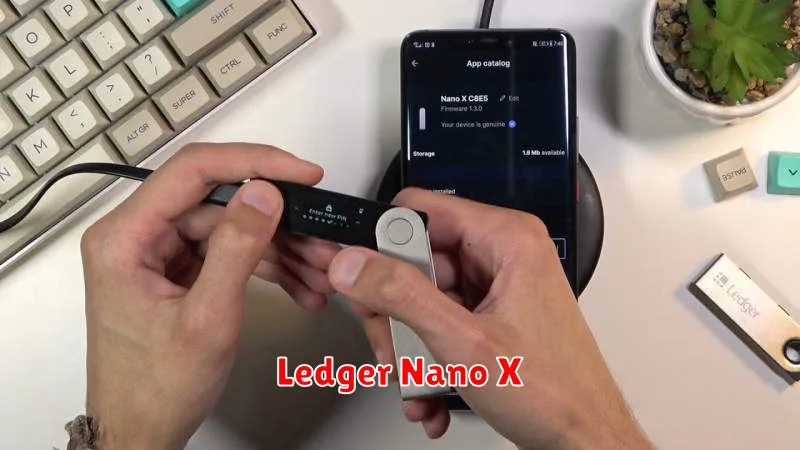
The Ledger Nano X is a hardware wallet offering a high level of security for storing cryptocurrencies. Its Bluetooth connectivity allows for convenient management via a smartphone app, while still maintaining strong security features. It supports a wide range of crypto assets.
Key features include a secure element chip protecting private keys, a user-friendly interface, and a relatively large screen compared to other hardware wallets. The device’s strong security is its primary advantage, offering protection against phishing and malware attacks that can compromise software wallets.
However, its price point is higher than some software alternatives. While Bluetooth offers convenience, it also introduces a slightly increased security risk compared to its predecessor, the Nano S, which relies solely on USB connection. Despite this, the Ledger Nano X remains a popular and reliable choice for users prioritizing security in managing their cryptocurrency holdings.
Trezor Model T
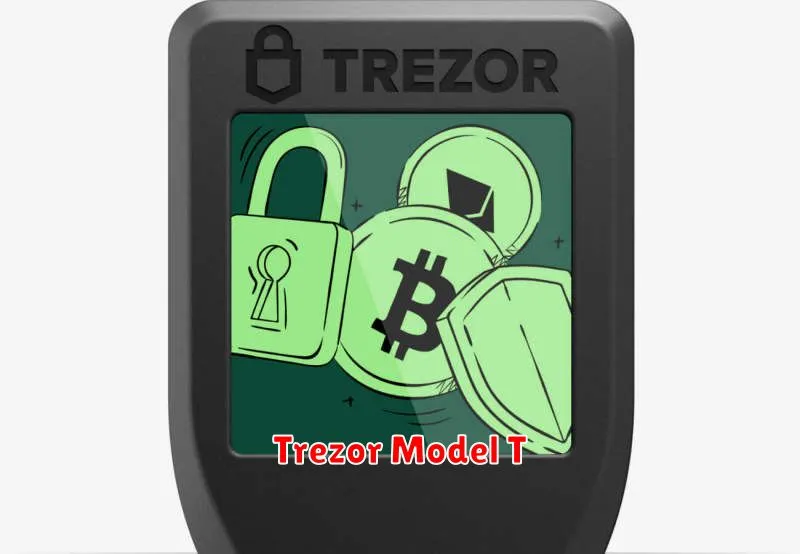
The Trezor Model T is a premium hardware wallet known for its robust security features and user-friendly interface. It offers a large touchscreen for easy navigation and supports a wide range of cryptocurrencies.
Security is paramount with the Model T, employing a secure element chip and open-source firmware for enhanced transparency and verifiability. Its advanced features include passphrase protection and a recovery seed for added security.
While it’s more expensive than some alternatives, the Trezor Model T provides a strong balance between security, usability, and cryptocurrency support, making it a top choice for users prioritizing a high level of protection for their digital assets.
Exodus Wallet
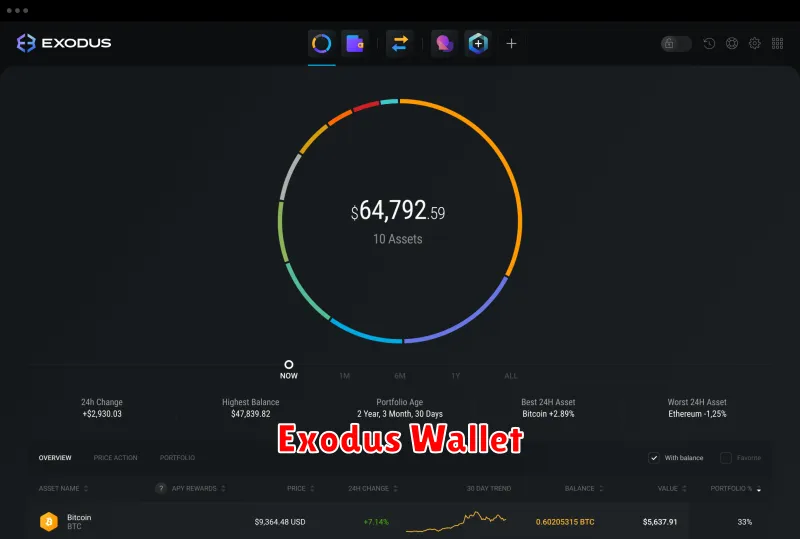
Exodus is a popular multi-cryptocurrency wallet known for its user-friendly interface and support for a wide range of crypto assets. It offers both desktop and mobile applications, providing convenient access to your funds.
A key feature of Exodus is its integrated exchange, allowing users to buy and sell cryptocurrencies directly within the wallet. However, it’s important to note that this convenience may come with slightly higher fees compared to using external exchanges.
Security is a significant aspect of Exodus. While it uses hardware security modules (HSMs) to safeguard user assets, it’s crucial to remember that no wallet is completely invulnerable to all security threats. Users should always practice good security habits like enabling two-factor authentication (2FA).
Exodus also offers staking and hardware wallet integration, extending its functionality beyond simple storage and transactions. The availability of these features varies depending on the supported cryptocurrency.
Overall, Exodus is a strong contender among multi-cryptocurrency wallets, particularly for users who prioritize ease of use and an integrated exchange. However, thorough research into its security features and fee structure is recommended before making it your primary wallet.
MetaMask
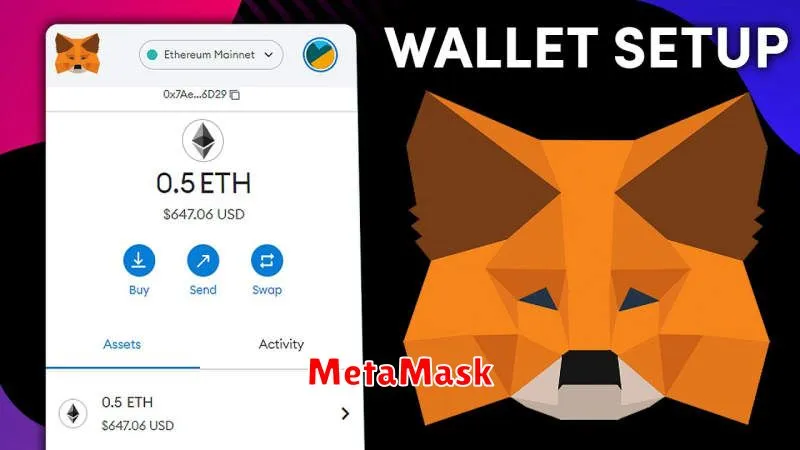
MetaMask is a popular and widely used cryptocurrency wallet, particularly known for its browser extension and mobile app compatibility. It provides easy access to decentralized applications (dApps) built on the Ethereum blockchain and other compatible networks.
Key features include secure storage of private keys, support for various tokens (ERC-20, ERC-721, etc.), and a user-friendly interface for interacting with dApps. Users can buy, sell, and swap cryptocurrencies directly through the platform, though the exchange used may vary by region.
While generally considered secure, users should understand that security best practices, such as using a strong password and enabling two-factor authentication (2FA), are crucial to protect their assets. The wallet’s security relies heavily on the user’s responsible handling of their seed phrase.
Strengths include its accessibility, widespread community support, and its integration with a large number of dApps. However, potential downsides include reliance on browser security and potential susceptibility to phishing attacks if users are not cautious.
Trust Wallet

Trust Wallet is a popular, non-custodial mobile wallet that supports a wide range of cryptocurrencies and blockchain networks. Its key feature is its integration with Binance, offering users access to decentralized applications (dApps) and various DeFi services directly within the wallet.
Security features include 12-word seed phrase recovery, ensuring users retain complete control of their funds. While generally considered secure, users should always practice good security hygiene, such as enabling two-factor authentication (2FA) where available.
Ease of use is a significant advantage, with an intuitive interface making it accessible to both beginners and experienced cryptocurrency users. However, advanced users might prefer wallets offering more granular control over specific settings.
Overall, Trust Wallet provides a good balance of security, usability, and functionality, making it a strong contender in the market for users seeking a straightforward and reliable mobile cryptocurrency wallet.
Coinbase Wallet
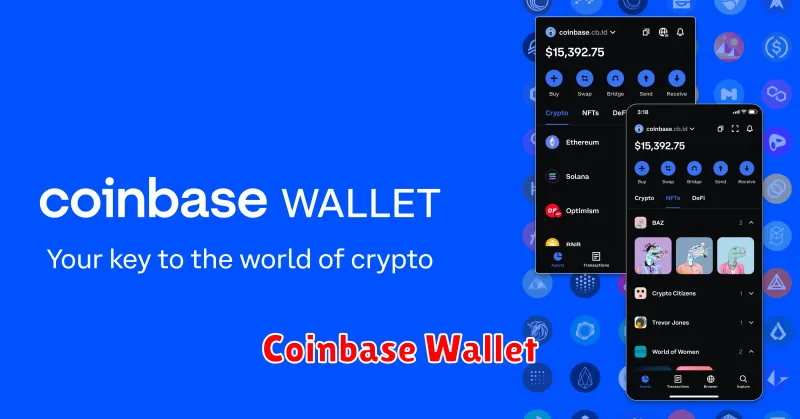
Coinbase Wallet is a self-custody wallet, meaning you are in complete control of your private keys. This offers a higher level of security compared to custodial wallets, but requires careful management of your keys to prevent loss of access to your funds.
It supports a wide range of cryptocurrencies, offering both transactional and storage capabilities. Users can buy, sell, send, and receive various digital assets directly within the wallet. The interface is generally considered user-friendly, even for beginners.
Security features include advanced encryption and a recovery phrase which allows for restoration of access in case of device loss or damage. However, it’s crucial to keep this phrase safe and secure, as its compromise would lead to loss of funds.
While Coinbase Wallet provides a strong level of security and convenience, it’s essential to understand the responsibilities associated with self-custody. Users should prioritize strong password security practices and maintain backups of their recovery phrase.
Atomic Wallet
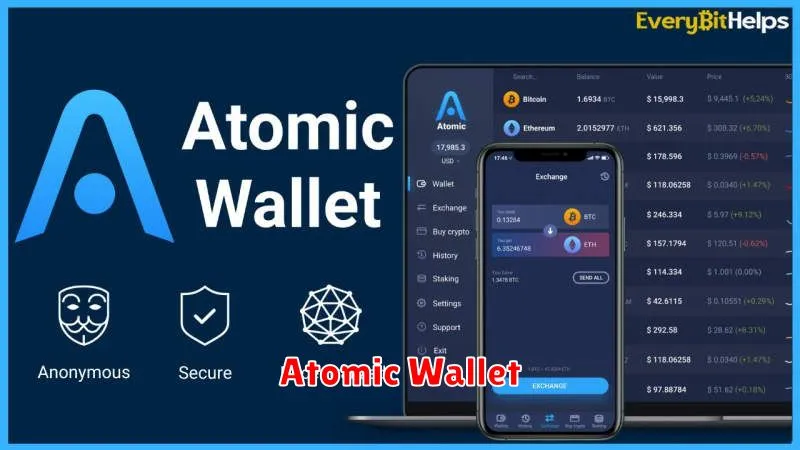
Atomic Wallet is a non-custodial cryptocurrency wallet, meaning you retain complete control over your private keys. This offers a high level of security as your funds are not held by a third party. It supports a wide range of cryptocurrencies and offers a user-friendly interface for both beginners and experienced users.
A key feature is its built-in exchange, allowing for direct swaps between different cryptocurrencies without needing to transfer funds to external platforms. However, it’s crucial to remember that while non-custodial wallets are generally safer, strong password practices and secure device management remain essential for protecting your assets.
The wallet offers both desktop and mobile versions, providing accessibility across multiple devices. It also incorporates features like multi-signature support for enhanced security, though this may require a more technical understanding to implement effectively.
Electrum
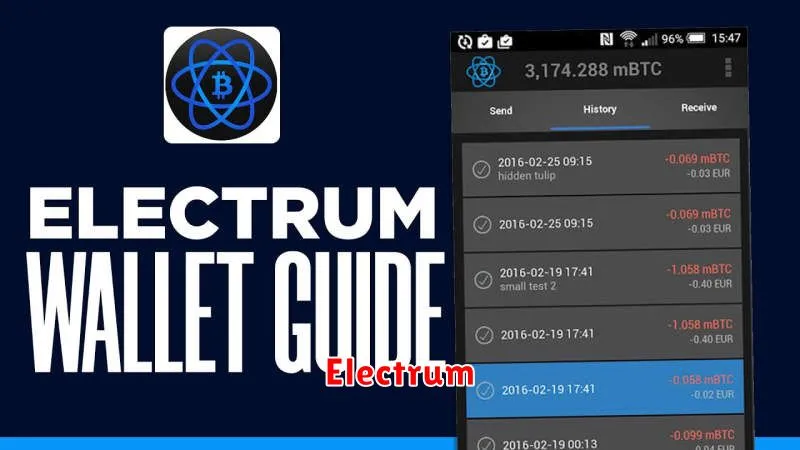
Electrum is a lightweight Bitcoin wallet known for its speed and security. It prioritizes simplicity, making it a good choice for both beginners and experienced users. While not as feature-rich as some other wallets, its focus on core functionality ensures a robust and reliable experience. Electrum uses SPV (Simplified Payment Verification), meaning it doesn’t download the entire blockchain, resulting in faster synchronization and reduced storage requirements. This also means that it’s less resource intensive than full node wallets. Its open-source nature adds to its transparency and security.
Key features include multi-signature support, hardware wallet integration, and excellent transaction history management. Its primary strength lies in its strong security features and its efficient design for handling Bitcoin transactions. However, its lack of support for altcoins might be a drawback for users who manage multiple cryptocurrencies.
Mycelium Wallet
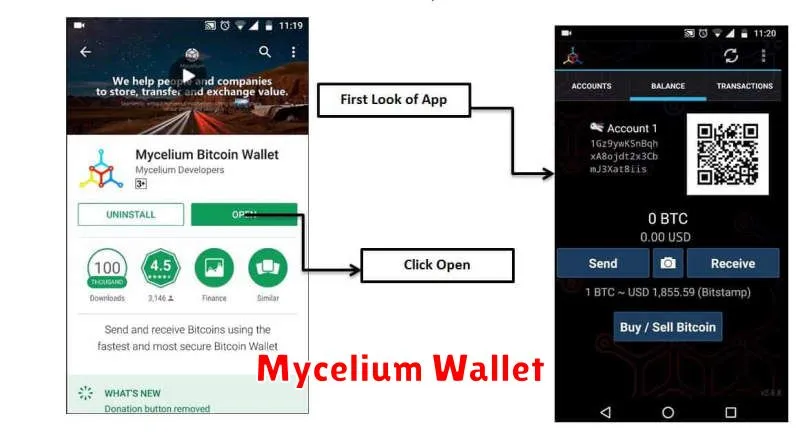
Mycelium Wallet is a highly secure and feature-rich cryptocurrency wallet known for its focus on privacy and self-custody. It offers both a mobile app and a desktop version, providing users with convenient access to their crypto assets.
A key feature is its support for hardware wallets, enhancing security by storing private keys offline. Mycelium also boasts robust transaction management capabilities, including the option to create custom transaction fees.
While known for its advanced features, Mycelium Wallet might present a steeper learning curve for beginners compared to simpler wallet interfaces. However, its emphasis on security and control makes it a strong contender for experienced users prioritizing privacy and self-governance of their funds.
ZenGo
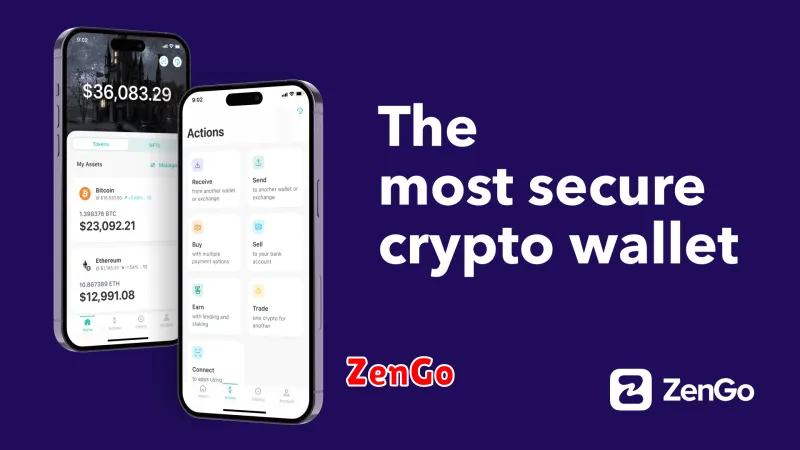
ZenGo is a non-custodial cryptocurrency wallet prioritizing user security. Its key feature is its reliance on multi-party computation (MPC) technology, eliminating the need for a seed phrase. This significantly reduces the risk of private key compromise, a major vulnerability in traditional wallets.
While eliminating the seed phrase enhances security, it also means users cannot independently restore their wallets. The wallet’s interface is designed for ease of use, making it suitable for both beginners and experienced cryptocurrency users. ZenGo supports a growing number of cryptocurrencies, although its precise selection might vary over time. It offers in-app exchange functionalities, making it a convenient all-in-one platform.
Overall, ZenGo represents a strong contender in secure cryptocurrency wallets, leveraging innovative technology to offer a streamlined user experience while prioritizing security. However, the lack of seed phrase control might be a drawback for some users who prioritize complete self-custody.

